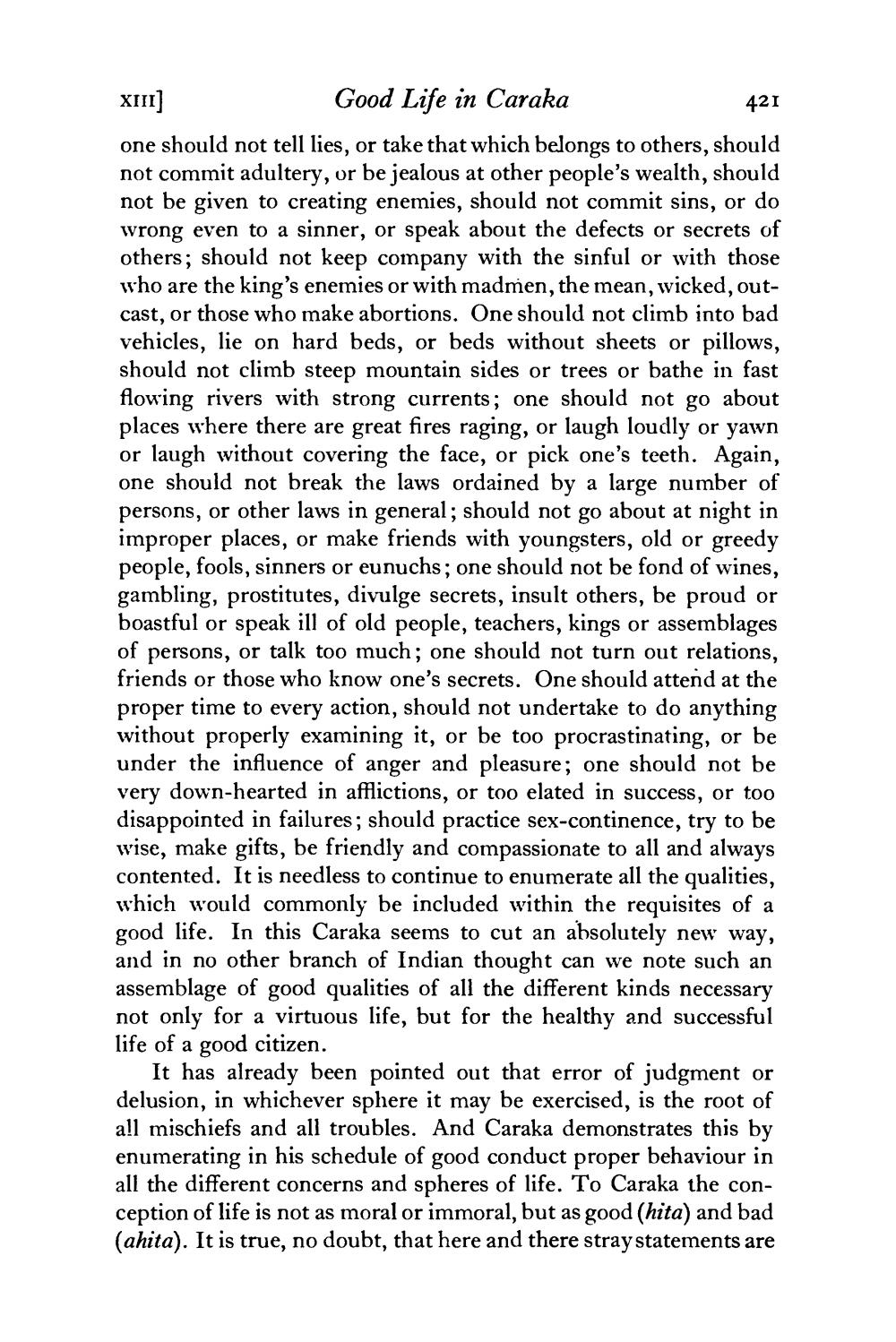________________
XII] Good Life in Caraka
421 one should not tell lies, or take that which belongs to others, should not commit adultery, or be jealous at other people's wealth, should not be given to creating enemies, should not commit sins, or do wrong even to a sinner, or speak about the defects or secrets of others; should not keep company with the sinful or with those who are the king's enemies or with madmen, the mean, wicked, outcast, or those who make abortions. One should not climb into bad vehicles, lie on hard beds, or beds without sheets or pillows, should not climb steep mountain sides or trees or bathe in fast flowing rivers with strong currents; one should not go about places where there are great fires raging, or laugh loudly or yawn or laugh without covering the face, or pick one's teeth. Again, one should not break the laws ordained by a large number of persons, or other laws in general; should not go about at night in improper places, or make friends with youngsters, old or greedy people, fools, sinners or eunuchs; one should not be fond of wines, gambling, prostitutes, divulge secrets, insult others, be proud or boastful or speak ill of old people, teachers, kings or assemblages of persons, or talk too much; one should not turn out relations, friends or those who know one's secrets. One should attend at the proper time to every action, should not undertake to do anything without properly examining it, or be too procrastinating, or be under the influence of anger and pleasure; one should not be very down-hearted in afflictions, or too elated in success, or too disappointed in failures; should practice sex-continence, try to be wise, make gifts, be friendly and compassionate to all and always contented. It is needless to continue to enumerate all the qualities, which would commonly be included within the requisites of a good life. In this Caraka seems to cut an absolutely new way, and in no other branch of Indian thought can we note such an assemblage of good qualities of all the different kinds necessary not only for a virtuous life, but for the healthy and successful life of a good citizen.
It has already been pointed out that error of judgment or delusion, in whichever sphere it may be exercised, is the root of all mischiefs and all troubles. And Caraka demonstrates this by enumerating in his schedule of good conduct proper behaviour in all the different concerns and spheres of life. To Caraka the conception of life is not as moral or immoral, but as good (hita) and bad (ahita). It is true, no doubt, that here and there stray statements are




